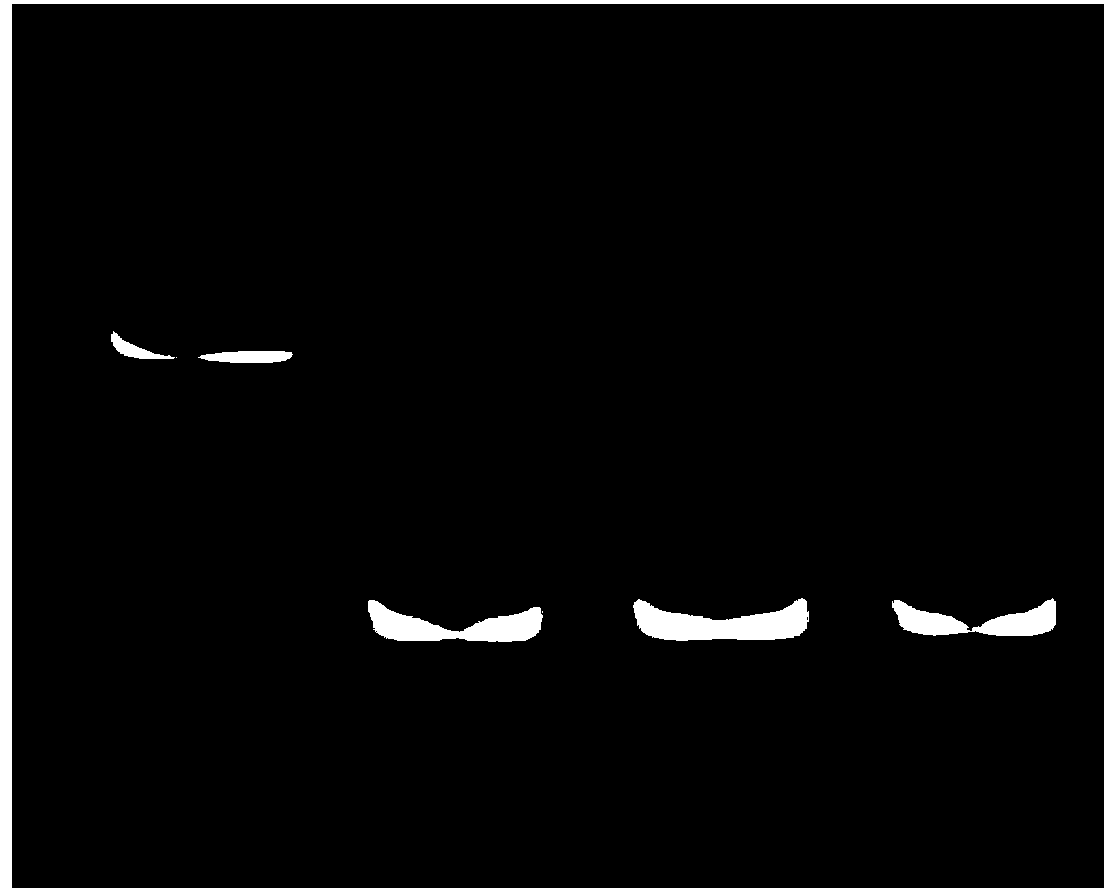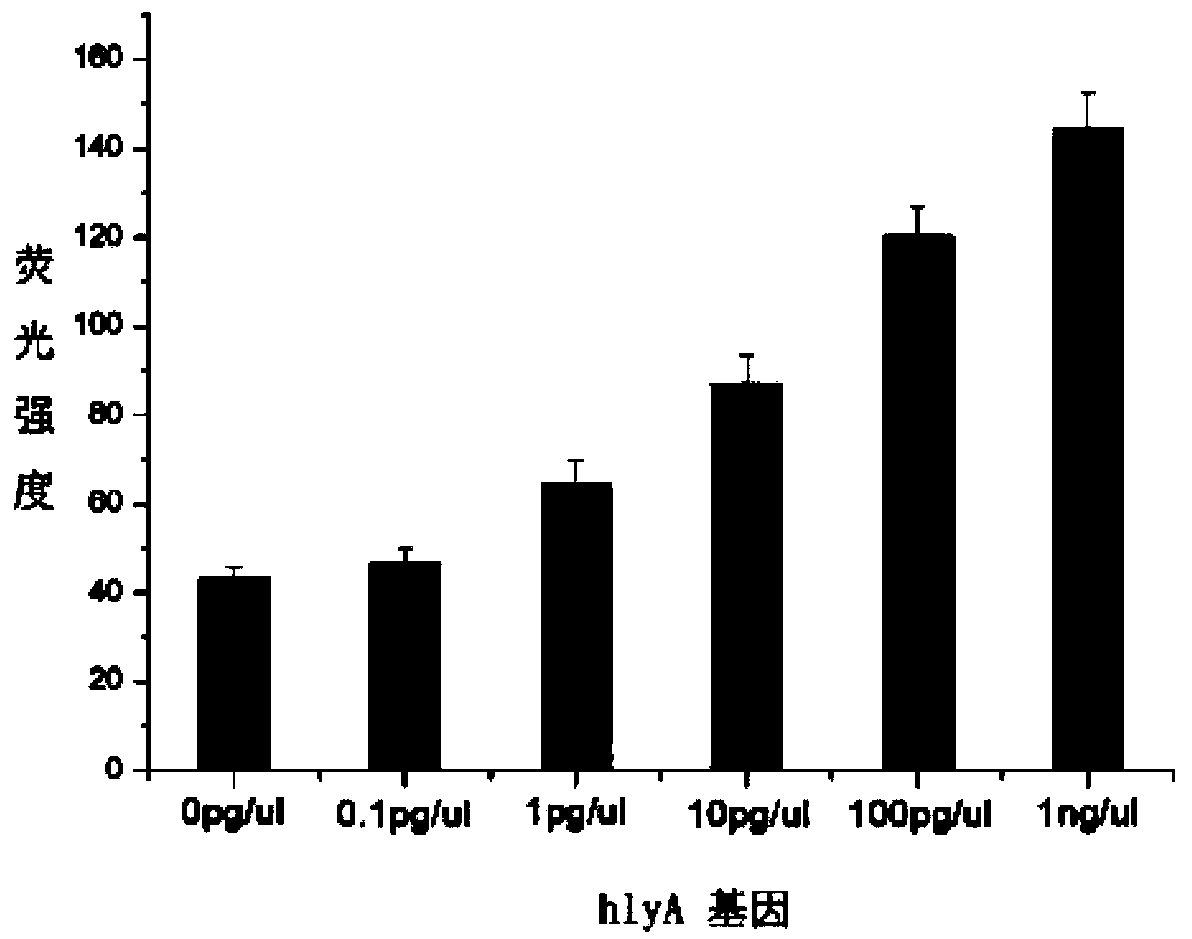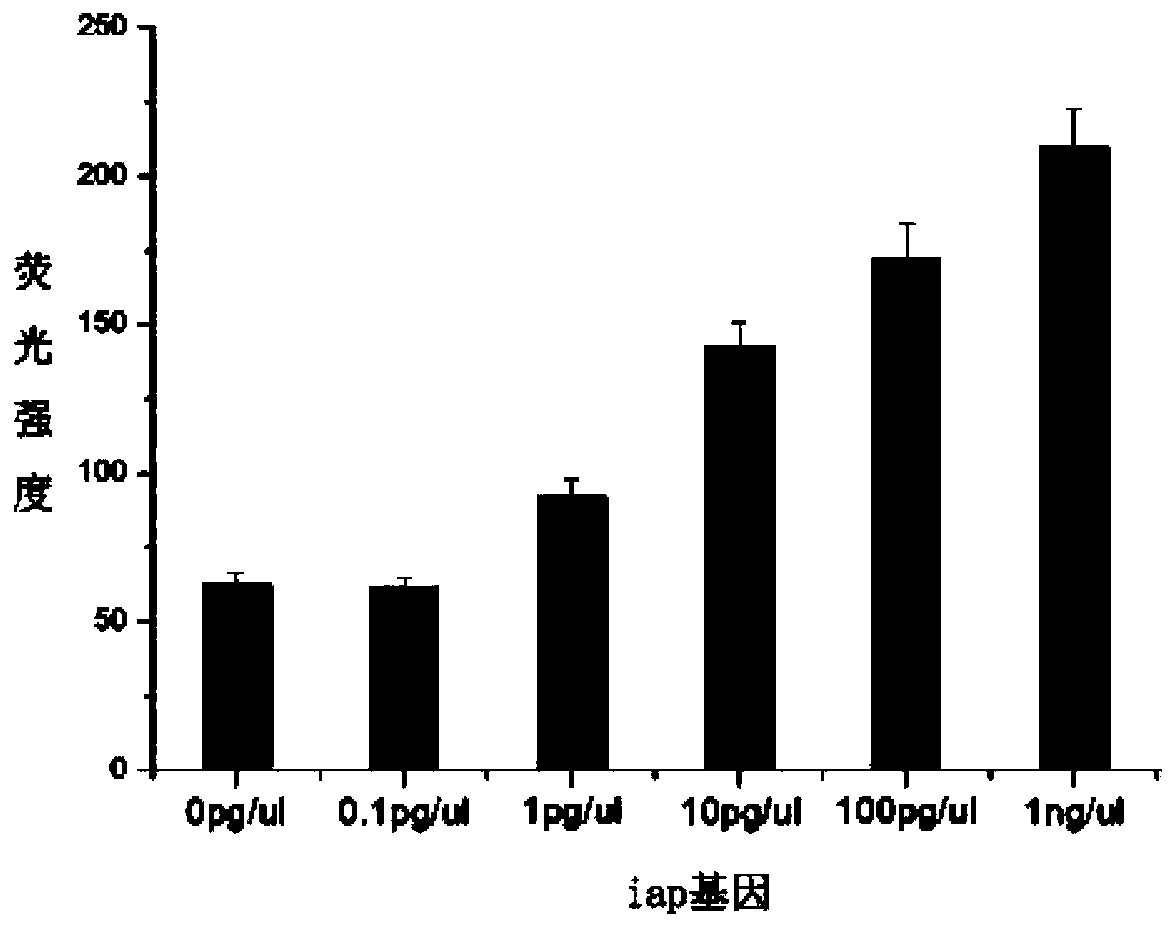Multi-gene detection method of Listeria monocytogenes based on quantum dot/graphene oxide nanometer platform
A technology of Listeria monocytogenes and a detection method is applied in the field of detection of Listeria monocytogenes polygenes, which can solve the problems of complicated steps, low signal-to-noise ratio, background signal interference, etc., and achieves a simple detection process and high sensitivity. Effect
- Summary
- Abstract
- Description
- Claims
- Application Information
AI Technical Summary
Problems solved by technology
Method used
Image
Examples
Embodiment Construction
[0035] The multigene detection method of Listeria monocytogenes based on the quantum dot / graphene oxide nano-platform of the present invention comprises the following steps:
[0036] 1) Primer design
[0037] Use DNAman to analyze the conserved region of the target gene to determine the conserved region of the target gene. The primer design software Primer Premier was used to design primers for hlyA and iap genes respectively. The designed sequences were purchased from Shanghai Yingjun, and the purification method was iDSL. The primer sequences are shown in the table below:
[0038] Table 1. hlyA and iap gene LATE-PCR primer sequences
[0039] Primer name
Primer sequence
theoretical annealing temperature
hly A restriction primer
GCTGCCGTAAGTGGGAAATCTGTCTCAG
70.4°C
hly A excess primer
ATGATTTGAACTTCATCTTTTGC
59.9°C
iap1 restriction primer
AACAAGCTGCACCTGCTGCAGA
70.3°C
iap2 excess primer
CTTTTGACAGCGTGTGT...
PUM
 Login to View More
Login to View More Abstract
Description
Claims
Application Information
 Login to View More
Login to View More - R&D
- Intellectual Property
- Life Sciences
- Materials
- Tech Scout
- Unparalleled Data Quality
- Higher Quality Content
- 60% Fewer Hallucinations
Browse by: Latest US Patents, China's latest patents, Technical Efficacy Thesaurus, Application Domain, Technology Topic, Popular Technical Reports.
© 2025 PatSnap. All rights reserved.Legal|Privacy policy|Modern Slavery Act Transparency Statement|Sitemap|About US| Contact US: help@patsnap.com



